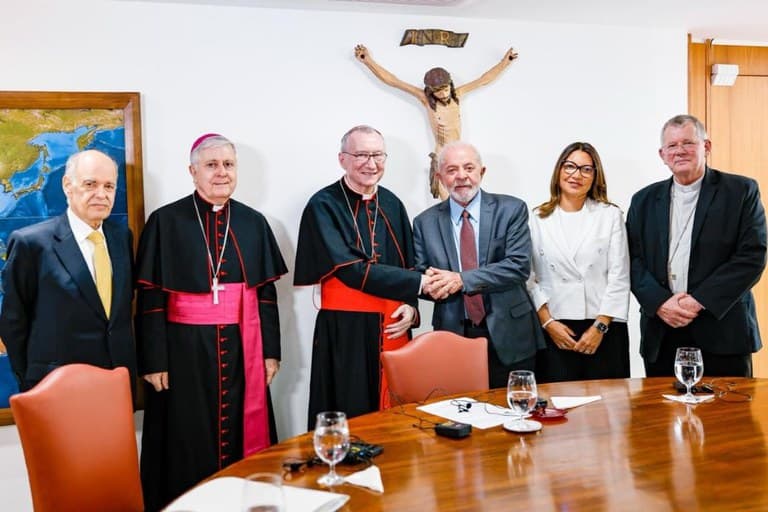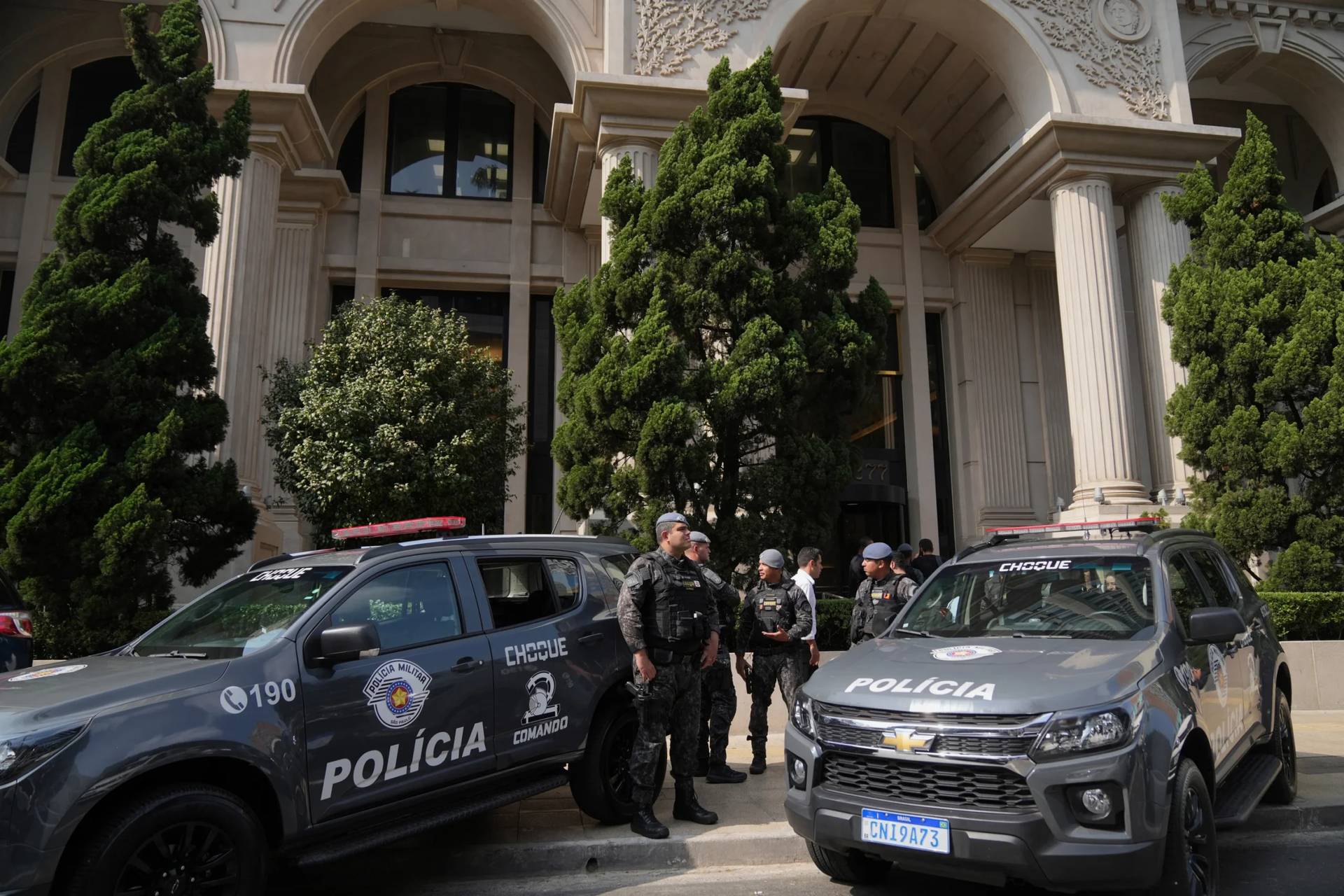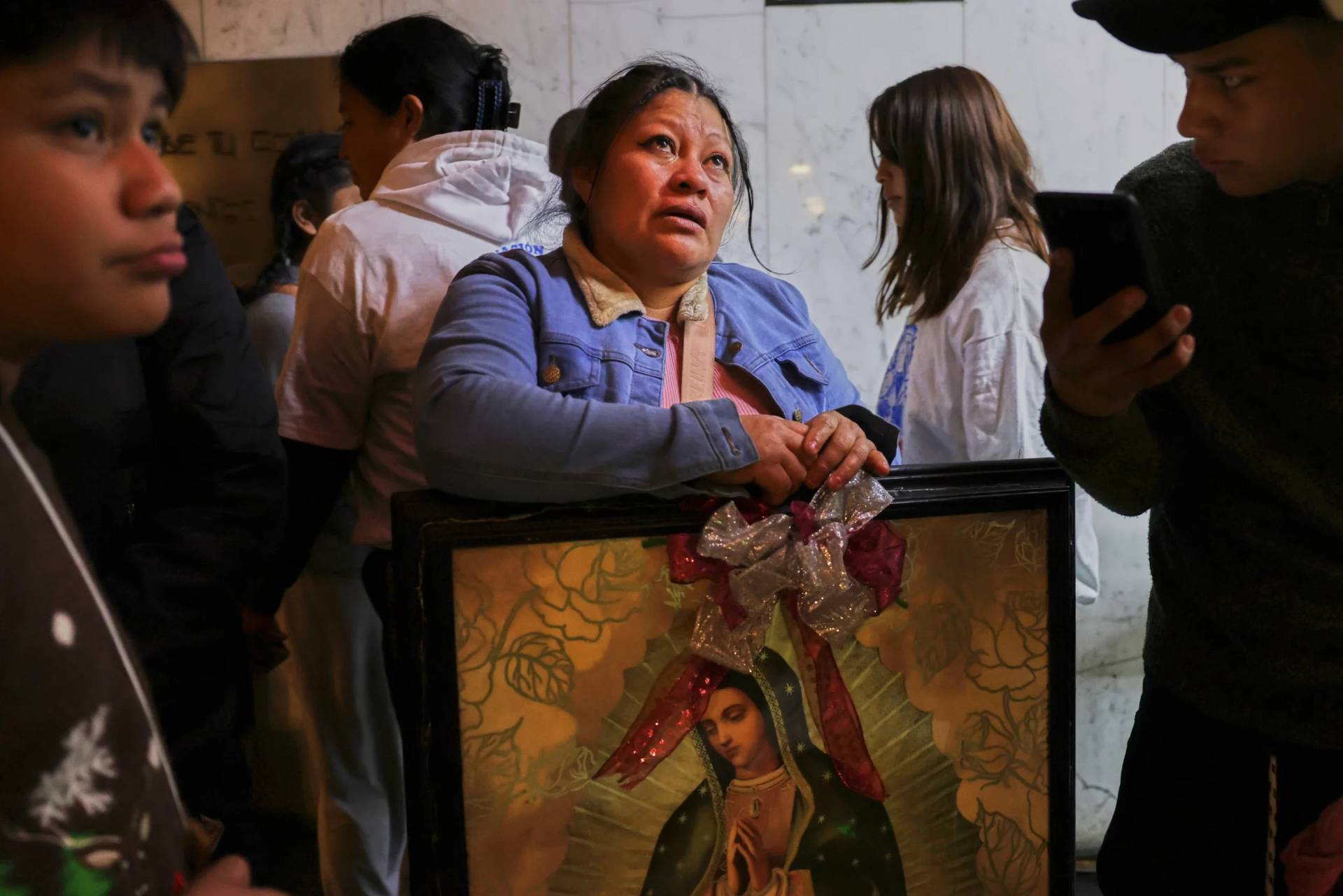SÃO PAULO – Church members, including Vatican authorities, have been concerned about the situation of the Brazilian Indigenous peoples, who endured years of attacks during former President Jair Bolsonaro’s tenure and now don’t see a radical transformation under President Luiz Inácio Lula da Silva.
On Apr. 8, Cardinal Pietro Parolin, Vatican’s Secretary of State, visited Lula in Brasília and, among other topics, discussed with him the current conditions of the native groups in the South American country.
Lula, whose presidential campaign in 2022 included the promise of reverting Bolsonaro’s policies that dismantled the government structure of Indigenous protection, told Parolin that his administration has created a Ministry of Indigenous Peoples, which is headed by an Indigenous woman, and has been making efforts to deal with the Yanomami humanitarian crisis.
“As far as our government is concerned, the Indigenous peoples will receive the best treatment possible,” Lula told Parolin.
Such measures don’t seem to be enough, however, to really address the needs of dozens of Indigenous groups in Brazil. That’s the opinion of many members of Church organizations that work with that social segment, especially the Bishops’ Conference’s Indigenous Missionary Council (CIMI).
According to CIMI’s Executive Secretary Luis Ventura Fernández, the government’s inactivity in proceeding with land grants to Indigenous people’s since last year has led to an unnecessary crisis of insecurity and violence against groups all over the nation.
In 2023, the Supreme Court ruled unconstitutional the so-called temporary landmark thesis, advanced by the lobby of big landowners in Congress. Their thesis is that only Indigenous peoples who were occupying their traditional lands when the Constitution was promulgated in 1988 can now be officially granted such territories.
“Despite the Supreme Court’s decision, the government failed to grant lands to Indigenous peoples whose claims had already been certified. That inaction opened new possibilities for the landowners’ bloc in Congress,” Ventura told Crux.
In September of 2023, the Senate passed a bill that contained the temporary landmark thesis. Indigenous associations and nongovernmental organizations have petitioned the Supreme Court to declare the new law unconstitutional, but the justices still haven’t examined it.
“The existence of two opposing rules – the Supreme Court’s decision establishing that the temporary landmark thesis is unconstitutional and the new law instituting it – has created a terrible legal insecurity for the Indigenous groups,” Ventura lamented.
Landowners interested in Indigenous territories have taken advantage of the situation and invaded lands in the Southern part of Brazil, in the northeastern State of Bahia, in Mato Grosso do Sul State and in the Amazon between the end of 2023 and the beginning of 2024.
“Violence against the Indigenous peoples has grown as well,” he said.
Until now, entities like CIMI have been able to legally avoid Indigenous groups from being evicted from their lands by occupiers while the Supreme Court doesn’t rule on the law’s constitutionality. But that can change anytime soon, Ventura argued.
Before meeting with Lula, Parolin had asked for information about such circumstances, which were provided to him by CIMI. He learned not only about the temporary landmark thesis, but also about the humanitarian crisis endured by some groups, particularly the Yanomami.
In January of 2023, only a few days after Lula took office, pictures of very skinny Yanomami children and elderly people went viral on social media in Brazil. With their territory invaded by more than 20,000 illegal miners, the Yanomami were suffering from the worst epidemic of malaria in decades. The deep pits excavated by miners are filled with stormwater and create the ideal environment for mosquitoes.
They were also dealing with an overspread famine in several villages. The combination of both crises led to at least 343 deaths in 2022.
While Lula quickly established a task force to take care of the sick and expel the invaders, Yanomami leaders and Indigenous rights organizations kept saying the problems were not solved. In 2023, 363 Yanomami died. The government said that the 2022 cases were underreported, so no comparison could be made with 2023.
Despite some progress, the invasion continues to exist, as well as the difficulties faced by the Yanomami. On Apr. 10, one of the major Yanomami leaders, Davi Kopenawa, met with Pope Francis in Rome and told him about some of his people’s hardships.
“I asked him to [help us to] take out the illegal miners from my people’s lands this year,” Kopenawa told Vatican Radio after the meeting.
He told the pontiff that the “Yanomami children are malnourished because of mining, because of the authorities who let them get in and invade Yanomami lands, and many diseases are spreading because of this reality.”
The Yanomami case may be seen as emblematic, due to the extent of the humanitarian crisis they’ve been facing, “but the government’s omissions regarding several other Indigenous peoples are equally absurd,” said Roberto Liebgott, a CIMI regional coordinator in the south of Brazil.
“The lands, which are so desired and needed by dozens of Indigenous groups, are still waiting to be granted. And even the already granted territories continue to be invaded and devastated by miners, cattle ranchers, soy growers, illegal loggers, and other forms of destruction,” he told Crux.
In Liebgott’s opinion, there’s a “cycle of brutal disrespect” of the Indigenous rights in Brazil.
“Unfortunately, there are only promises, plumage, adornments, and masks in the horizon,” he said.















